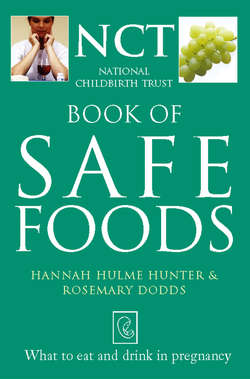Читать книгу Safe Food: What to eat and drink in pregnancy - Rosie Dodds - Страница 23
Vegetable protein
ОглавлениеVegetable sources of protein include:
nuts and seeds
peanut butter (peanuts contain as much protein as most cheeses and twice as much as eggs – but see the note about peanut allergy at the end of Chapter 7)
meat substitutes, tofu (made from soya beans) and Quorn (made from a fungus)
pulses including lentils (such as masur dhal), baked beans, kidney beans, black-eyed beans, butter beans, borlotti beans, mung beans, broad beans and all kinds of peas.
A well-planned vegetarian diet is extremely healthy. Vegetable protein foods are rich in fibre as well as protein, and contain many vitamins and minerals. Avoiding meat and using vegetable protein foods can be a good way of reducing your intake of saturated fat, and increasing your intake of fibre.
The protein in vegetable protein foods is less concentrated than the protein in animal protein foods. Servings tend to be larger. If you do not eat meat or drink milk, it is a good idea to include a serving of vegetable protein at each meal. Some other important nutrients are less concentrated in vegetable protein. Choose vegetable protein foods rich in iron, zinc, calcium and vitamin B12 (more about all of these nutrients in Chapter 2).
